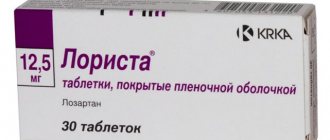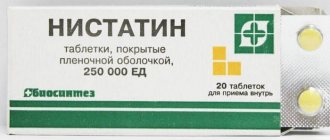The blister can contain 21 or 28 contraceptive pills. If there are 21 of them, then you should take 1 tablet per day (for 21 days), and then take a break for 7 days. On day 8, you begin taking tablets from a new blister. If the blister contains 28 tablets, then there is no need to take a 7-day break from taking COCs. The tablets are taken all 28 days in a row, without any breaks.
Groups of birth control pills
Among all other forms of a wide range of contraceptives offered to consumers by the pharmaceutical industry, hormonal pills for preventing unwanted pregnancy are the leaders in consumer demand. Unfortunately, many women “prescribe” them to themselves, without thinking about the side effects and contraindications to taking these drugs. Correction of the period of use of tablets, and, most importantly, their choice is carried out exclusively by a gynecologist based on a study of the woman’s medical history and the results of laboratory tests.
Types of oral contraceptives:
- COCs (combined oral contraceptives),
- Mini-drinks.
The main active ingredient of COCs is one of the progestogens (norethisterone, norgestrel, desogestrel, gestodene, etc.) and ethinyl estradiol (an analogue of the estrogen hormone).
Types of COCs depending on the ratio of hormones:
- Monophasic drugs
- Biphasic drugs
- Three-phase drugs
| Monophasic drugs In each tablet of drugs in this group, the percentage ratio of the gestagenic and estrogenic components is unchanged | Desogestrel and ethinyl estradiol:
| Ethinyl estradiol and dienogest:
| Gestodene and ethinyl estradiol:
|
|
|
| |
| Biphasic drugs The dose of estrogen in all tablets is the same, the dose of gestagen varies depending on the period of the menstrual cycle |
|
| |
| Three-phase drugs Doses of estrogen and progestogen change three times depending on the period of the menstrual cycle |
|
|
|
The mechanism of action of combined oral contraceptives is to block the formation of luteinizing hormone (LH) and follicle-stimulating hormone (FSH) in the pituitary gland, resulting in inhibition of ovulation. At the same time, the functioning of the ovaries and the structure of the endometrium changes. Glandular regression of the mucous membrane makes it impossible for a fertilized egg to attach to the wall of the uterus. The mucus in the cervical canal becomes thicker, making it more difficult for sperm to move into the uterus.
Classification of COCs according to the degree of concentration of active components:
- Microdosed oral contraceptives. The hormone content is minimal, the drugs are recommended for those who use COCs for the first time, as well as for young women under 25 years of age. Monophasic drugs of this group: Zoely, Jess, Miniziston, Dimia, Novinet, Logest, Miniziston, Mercilon, three-phase drug Qlaira.
- Low-dose oral contraceptives. The drugs have an anti-androgenic effect; their use reduces the growth of unwanted hair, oily skin on the face and scalp, seborrhea, and acne. Recommended for young and middle-aged women who have given birth, as well as for those for whom microdose preparations are not suitable, as spotting is observed in the middle of the menstrual cycle. Drugs in this group: Diane, Janine, Miniziston, Rigevidon, Yarina (Midiana), Tri-Mercy, Regulon, Belara, Femoden, Lindinet, Marvelon, Chloe, Silest, Demoulin, Microgynon.
- High-dose oral contraceptives. The hormone content in drugs of this group is quite high; they are prescribed for the treatment of hormonal disorders or pathologies of the female genital area (endometriosis) exclusively as prescribed by a doctor. Drugs: Non-ovlon, Trizeston, Triquilar, Tri-regol, Ovidon.
- Mini-drinks. Drugs in this group contain only progestogen and act on limited areas of the female genital organs. The active ingredient in the mini-pill changes the composition and amount of mucus in the cervical canal, which prevents sperm from moving into the uterus. As a result of taking drugs, the morphology and biochemistry of the endometrium changes, thereby making it impossible for the implantation of the egg. Half of women using mini-pills for contraception? ovulation does not occur. Preparations of this group with linestrenol as an active substance (Orgametril, Exluton, Microlut), with desogestrel (Charozetta, Laktinet).
| Charozetta (800 rubles) desogestrel | Lactinet (530 rubles) desogestrel | Orgametril (RUB 1,100) linestrenol | Exluton (RUB 1,250) linestrenol |
TOP 7 contraceptives for nulliparous women
For nulliparous women, it is necessary to choose safe hormonal contraceptive pills that will not affect the hypothalamic-pituitary system. They contain a minimum dose of the hormone and selected modern gestagens that provide a contraceptive effect. The best oral contraceptives can be combined into the TOP 7.
#1 Jess and Jess plus
The best contraceptive pills for nulliparous women are Jess and the supplemented version Jess Plus. They contain drospirenone, which has an antiandrogenic effect. Thanks to this, signs of acne and hirsutism disappear in young girls, the menstrual cycle is normalized, and weight is well controlled .
The difference between Jess Plus is the calcium content of levomefolate, so these tablets are recommended for nulliparous women who are planning a pregnancy. The additional component is a source of folic acid, which in the early stages is necessary for the correct division of embryonic cells and the prevention of abnormalities in the development of the neural tube. When using Jess, a supply of folate is created in the body, which prepares for pregnancy. The cost of contraceptives is about 1,000 rubles per month’s package.
No. 2 Dimia
Birth control pills contain similar doses of hormones. Ethinyl estradiol 2 mcg provides good control of the menstrual cycle, and drospirenrone protects against pregnancy and has an antiandrogenic effect. The difference from Jess is the cost of the drug; a monthly package costs an average of 570 rubles. These are cheap pills with good contraceptive effects.
No. 3 Yarina
These contraceptives are conditionally free of side effects due to the selection of components in their composition. The gestagenic component is represented by drospirenone, which has an antiandrogenic effect. Therefore, women have good weight control, water retention does not occur in the last days of the cycle, and swelling does not develop. The breasts are not engorged and do not hurt. The tablets are approved for use by nulliparous older women who have poor cycle control on other tablets. Thanks to a dose of 3 mcg ethinyl estradiol, periods become regular and intermenstrual bleeding disappears. The cost of packaging Yarina is from 1030 rubles.
No. 4 Logest
Logest contains ethinyl estradiol and gestodene. The dose of estrogen is minimal, so it is suitable for young nulliparous women. Gestodene does not have an antiandrogenic effect, but also does not stimulate the sebaceous glands and hair follicles. Therefore, acne does not appear and excess hair growth is not observed. The drug does not completely inhibit the functioning of the ovaries, after which the menstrual cycle is quickly restored. But some women may suffer from libido. The cost of packaging is affordable from 730 rubles.
No. 5 Charosetta
These are progestogen-containing tablets, which are considered the best in the presence of contraindications to combined drugs. It contains only desogestrel, so the drug has no side effects associated with the action of estrogen. The contraceptive is prescribed for contraindications to taking COCs, including:
- diabetes;
- tendency to thrombosis;
- arterial hypertension;
- uterine fibroids;
- endometriosis;
- high blood pressure.
The tablets have a gentle effect, but are highly reliable. A prerequisite for use is a strict intake at the same time, if you miss it, you need to use barrier products for 7 days.
One of the disadvantages of the drug is its high price; packaging will cost from 3,400 rubles.
No. 6 Mercilon
The tablets contain a minimum dose of desogestrel - 0.015 mg, and only 2 mcg of estrogen. This makes them reliable and safe for women's health. Mercilon can be used by nulliparous women, as well as those who had an abortion immediately after the procedure. The medicine will help restore hormonal levels and prevent a new pregnancy. Mercilon is available in blister packs of 21 tablets; you can purchase a pack for a month, 3 or 6, which will allow you to avoid going to the doctor for a prescription.
No. 7 Miniziston
The tablets are useful for women who have undergone treatment for gynecological dyshormonal diseases, endometrial hyperplasia and want to prevent relapse.
The composition contains levonorgestrel, which in a dose of 100 mg has an antiandrogenic effect and reduces blood loss during menstruation. The cost of packaging for a month is about 700 rubles. Women who have not given birth can take birth control pills for as long as protection against pregnancy is needed.
The pills rarely cause infertility; menstrual irregularities after discontinuation appear in case of existing irregularities.
How to choose good birth control pills?
The choice of oral contraceptives should not be trusted by friends or a pharmacist; you should prescribe them yourself. To choose contraceptive pills, you need to visit a gynecologist. The doctor will analyze the patient’s medical history, genetic predisposition to major diseases at risk, and evaluate possible contraindications.
As a result of the medical examination, the following indicators are assessed:
- Weight, blood pressure;
- Condition of the skin, presence of excessive hair growth on the body;
- Signs of androgen excess;
- Condition of the mammary glands (by palpation);
- Analysis of blood biochemistry, blood sugar, liver enzymes, hormonal levels;
- Ultrasound of the pelvic organs and mammary glands (mammography);
- Analysis of smears from the vagina and cervical canal;
- Condition of the pelvic organs (examination in mirrors);
- Assessment of the state of the visual organs (examination by an ophthalmologist).
The choice of contraceptive pills is made taking into account the type of constitution of the woman.
Parameters of constitutional-biological type:
- Height, appearance features;
- Volume of mammary glands;
- Type of pubic hair;
- Skin and hair condition;
- Features of menstruation and premenstrual symptoms;
- Amenorrhea or menstrual irregularities;
- Existing somatic pathologies.
Female phenotypes and most suitable oral contraceptives:
Estrogen predominance
Phenotype – feminine, with dry skin and hair, short and medium height, long menstruation with large blood loss, menstrual cycle more than 4 weeks. For women with estrogen predominance, contraceptives with high and medium doses of hormones are recommended: Rigevidon, Triziston, Milvane, etc.
Milvane (ethinyl estradiol and gestodene):
| Ethinyl estradiol and levonorgestrel:
| |
Equal amounts of estrogens and androgens
Phenotype: feminine, with developed mammary glands of medium size, average height, normal oily skin and hair, no PMS, menstrual cycle lasts 4 weeks, menstruation lasts 5 days. New generation drugs are recommended: Microgynon, Silest, Femoden, Marvelon, Lindinet-30 and others.
Ethinyl estradiol and desogestrel:
| Ethinyl estradiol and Norgestimate:
| Eethinyl estradiol and gestodene (Milvane):
| Ethinyl estradiol and levonorgestrel:
|
Predominance of androgens (gestagens)
Phenotype – tall stature, underdeveloped mammary glands, oily skin and hair above normal, PMS in the form of depression and pain in the lower abdomen and lower back, scanty menstruation with a short cycle of less than 28 days. Recommended drugs: Jess, Janine, Yarina, Diane-35.
Ethinyl estradiol and drospirenone:
| Ethinyl estradiol and drospirenone:
| Ethinyl estradiol and drospirenone:
| Nomegestrol and Estradiol:
|
Ethinyl estradiol and dienogest:
| Ethinyl estradiol and cyproterone:
| ||
Mini-pill
These birth control pills contain only artificial progestogen and no estrogen. They are also called single-component birth control pills. Here we can mention Microlute, Charozetta.
Most often, mini-pills are prescribed after the age of 35, especially if a woman has already given birth. In such cases, the woman’s own estrogen is usually sufficient. Excess estrogen can cause harm in two ways.
Firstly, by increasing the risk of cancer and inflammation - because the uterine tissue will become denser. Secondly, and these effects are very common - in response to excess estrogen, the body will start producing testosterone. And then the negative consequences will be excess hair, oily skin and hair, and a purulent rash. That is why the effect of gestagen is sufficient. It operates in generally the same way as in COCs. Ovulation does not occur, and the passage of sperm through the genital tract is extremely difficult. A fertilized egg (which is extremely unlikely) will not be able to implant in the uterus.
Menstruation does not occur when taking the mini-pill of birth control pills. Instead, bloody discharge occurs, which can be attributed to false menstruation. Contraindications and side effects are the same as for combined contraceptives.
How to take hormonal oral contraceptives correctly?
A standard blister of birth control pills, designed for one cycle, contains 21 pieces. Exceptions: Jess (a new generation drug, intended for young women) – 24 tablets, Qlaira (a modern drug for women over 35 years old) – 28 tablets.
Rules for taking oral contraceptives:
- Reception begins on the first day of menstruation, it is continued daily at the same hour chosen for this.
- The rule for the forgetful is to put the blister with pills where it will constantly catch your eye (attach it with a magnet to the refrigerator door, put it in a cosmetic bag, to a cup with a toothbrush).
- Take 1 tablet daily until the blister pack runs out, then take a break for 7 days, during which menstruation-type bleeding will occur.
- After seven days, you need to start a new blister of contraceptives, regardless of whether the bleeding has stopped or not.
- If vomiting occurs, you should take the tablet out of turn.
- If you miss another pill, you need to resume it immediately.
- If you vomit and skip a dose, it is advisable to use other methods of protection for 1-2 days.
- A similar tactic of additional contraception is used in the first 2 weeks of taking oral contraceptives, if this happens for the first time in life.
- Bloody discharge in the middle of the cycle is not a reason to stop taking COCs. Most likely, they are associated with changes in the body’s hormonal levels, and will last no longer than 2-3 months.
After an artificial termination of pregnancy, birth control pills are started either on the day of the abortion, or a month after it, on the day of the first menstruation.
There are drugs that, when used simultaneously, reduce the contraceptive effect of the pills. An example is Rifampicin, which stimulates the production of liver enzymes. In the case of systematic treatment of somatic diseases, you should carefully study the instructions for the medications and inform your doctor about the regular use of oral contraceptives. If such medications must be taken, barrier contraception methods should be provided for the duration of treatment (condom).
As for the mini-pill, there is no break for menstruation while taking them. The tablets are taken for 28 days, at the same time. Lactation is not a contraindication for taking the mini-pill; breastfeeding can be continued. If a woman is not breastfeeding, low-dose birth control contraceptives are indicated for her. They are allowed to be used from 3-4 weeks after birth.
It is important to remember that in the first 2 weeks of taking oral contraceptives, the contraceptive effect is not strong enough. It reaches a 100% guarantee only in the second month of taking the pills, although the ovaries are blocked almost immediately.
When does the effect occur?
If the drug is started on the first day of your period, the remedy will work immediately. It does not matter which type of pill (micro or mini) a woman chooses. Taking between days 2-5 of the period does not guarantee a contraceptive effect. The medication will not take effect; you will need to take additional protection for a week. After this period the protection is more reliable.
Girls often suffer from menstrual pain or heavy bleeding; regular use of a hormonal drug reduces these complaints. Dysmenorrhea caused by spasmodic pelvic pain during bleeding is relieved after taking the drug for a week.
The medications work to suppress the body's natural cyclical hormones, preventing pregnancy. Changes in the uterine mucosa occur after 10 continuous doses, preventing the fertilized egg from implanting.
Side effects of birth control drugs
Side effects occur when using oral contraceptive pills.
Minor side effects:
| Serious side effects:
|
The occurrence of serious side effects or the regular occurrence of minor side effects is a reason to discontinue oral contraceptives.
Women taking oral contraceptives should periodically evaluate their current health status in order to notice side effects in time.
Necessary activities:
- Blood pressure monitoring - every six months;
- Physical examination (condition of the mammary glands, liver, gynecological examination of the pelvic organs), urine analysis - annually;
- Breast self-examination - monthly.
There is world practice in the distribution of oral contraceptives. These are programs for countries with a low level of medical development. For this reason, access to regular examinations is almost impossible for these women. They have an increased risk of side effects.
Taking COCs without consulting a doctor
Doctors are concerned that providing access to hormonal contraception without the need to visit a gynecologist could lead to women refusing to attend routine check-ups. Preventing pregnancy is not the only reason people use birth control. The drug relieves cramps and PMS, helps with skin problems.
Only a gynecologist can select a COC; taking the drugs on your own can cause side effects.
Hormonal imbalance is a common occurrence with incorrectly selected oral contraceptives.
Absolute contraindications to oral contraceptives
There are diseases for which birth control pills are not prescribed. These are congenital hyperbilirubinemia (Gilbert's syndrome), multiple sclerosis, myasthenia gravis, thalassemia, bronchial asthma, thyrotoxicosis, sarcoidosis, the need for renal dialysis, rheumatoid arthritis, lymphogranulomatosis, retinitis pigmentosa.
Absolute contraindications to combined OCs:
| Absolute contraindications to taking pure progestins:
|
The dangers of using oral contraceptives should not be underestimated even for seemingly completely healthy women. It is quite possible that neither the patient nor the attending physician is aware of hidden diseases on the list of contraindications. Therefore, the risk of developing cancer and pulmonary thromboembolism cannot be completely excluded.
There is a belief, widespread in the professional environment and among consumers of birth control pills, not without the help of advertising from manufacturers of these drugs, about the safety of a reduced dose of hormones in modern contraceptives. Meanwhile, long-term use of hormonal drugs in any quantity negatively affects the female body. Often women become convinced of this too late, when nothing can be changed. The danger of oral contraceptives is not really visible; no one can convincingly prove that a woman’s current health problems (oncology, stroke, thromboembolism) and infertility are the consequences of long-term use of birth control pills.
The best intrauterine contraceptive devices
Many gynecologists suggest that patients who are not ready for motherhood have an intrauterine device installed. Most often, such devices are indicated for women who have given birth and who have a regular partner. IUDs are divided into two categories: hormonal therapeutic coils and non-hormonal bactericidal coils.
Mirena
A hormonal intrauterine implant will allow you to forget for a long time about the fear of an unplanned pregnancy. In addition to the contraceptive effect, Mirena has a strong healing effect on the female body. This contraceptive is very popular among many women due to its reliable protection against unwanted pregnancy.
Pros:
- Highly effective contraceptive action.
- Leads to relief from many female ailments (for example, fibroids resolve, endometriosis goes away).
- Regularity of the menstrual cycle.
- Brightness of sensations, psychological liberation during sexual intercourse.
- No side effects.
- There is no need to take pills every day.
Minuses:
- An expensive pleasure.
- Painful during installation.
- Relatively long adaptation period.
Multiload Ku-375
An effective contraceptive Multiload Ku-375 at a relatively low price is most often given to women after the birth of a child. The validity of the IUD is five years. Multiload manufacturing materials – high-quality plastic + copper spiral.
Pros:
- Ultra-high reliability of protection against pregnancy – 99%.
- Versatility (suitable not only for adult women, but also for nulliparous girls).
- A reliable barrier to infections.
- Long validity period.
- Does not cause discomfort in partners.
Minuses:
- Relatively high cost of the spiral.
- Unpleasant sensations when inserting and removing the IUD.
Is it possible to get pregnant while taking birth control?
There is such a possibility, but its likelihood against the background of using birth control pills is minimal.
Conditions for the occurrence of unwanted pregnancy while taking OCs:
- Violation of the rules for taking the drug - use of expired tablets, omissions or irregular use at different times of the day.
- Vomiting in case of poisoning immediately after taking OCs or taking tablets together with other drugs that reduce the contraceptive effect.
When hormonal contraception is prohibited
Oral contraceptives, although considered the most reliable protective method against unwanted conception, are not suitable for everyone. If a woman has not stopped smoking by the age of 35, then she is strictly prohibited from taking hormonal contraceptives. Nicotine, combined with hormonal fluctuations, increases the risk of thrombosis. After thirty-five, the risk of developing heart pathologies increases, which can be facilitated by heavy smoking while taking birth control pills.
Taking hormone-containing pills is prohibited if you have:
- If you feel unwell, you should immediately consult a doctor
diabetes mellitus;
- migraine-like headaches of unknown etiology;
- liver pathologies;
- kidney diseases;
- heart diseases;
- malignant formations;
- predisposition to thrombosis.
Taking hormonal contraceptives should be stopped a month before the proposed surgery. Antibiotics reduce the effectiveness of contraception: due to changes in intestinal flora that occur while taking antibiotics, hormones are less absorbed.
Is it possible to take hormonal pills after 35?
In countries with a high level of medical development, approximately 50% of married couples prefer sterilization as a method of contraception. Women over 35 years of age are not recommended to take hormones if they have a combination of cardiovascular diseases with smoking, or a high risk of cancer.
After 40-45 years, it is advisable to take drugs from the mini-pill group. They have proven themselves to be effective against endometrial hyperplasia, uterine fibroids, and endometriosis.
Blood test for hormones
The gynecologist prescribes blood tests to assess health status and facilitate the selection of suitable contraceptives. A hormone produced by the ovaries during ovulation (progesterone) helps prepare the lining of the uterus for an egg if it is fertilized by sperm.
High testosterone levels cause irregular or missed menstrual cycles, making it difficult to take medications. Polycystic ovary syndrome is a common cause of high testosterone levels. Lower levels of the hormone are produced during menopause, which can lead to decreased libido. In case of hormonal disorders, blood tests must be performed before prescribing.
Emergency and non-hormonal contraception
Emergency contraception
To prevent unwanted pregnancy during unprotected sexual intercourse, a woman can use emergency contraception. The most famous drugs from this group are Postinor and Escapelle. Postinor is used no later than 72 hours after sexual intercourse without contraception.
First, the woman should take 1 tablet, and 12 hours later the second. Regular oral contraceptives (COCs) can also be used as emergency contraception. It is important that the tablet contains at least 0.25 mcg of levonorgestrel and at least 50 mcg of ethinyl estradiol. Immediately after sexual intercourse, you should take 2 tablets of an oral contraceptive, and after 12 hours, repeat the dose at the same dose.
The prescription of emergency contraception is for exceptional indications (rape, damaged barrier contraception). According to the recommendations of the World Health Organization, such drugs should not be used more than 4 times a year. In Russia, they are used by women on an ongoing basis, which is fundamentally wrong. Emergency contraception drugs have an abortifacient function and harm a woman’s reproductive capabilities.
Non-hormonal contraception
| Non-hormonal birth control pills are spermicides intended for topical use for contraceptive purposes. The main active ingredient of these contraceptives serves as a kind of barrier to the penetration of sperm into the uterine cavity. An additional effect of non-hormonal contraceptives is an anti-inflammatory and antimicrobial effect. Directions for use: intravaginal administration of the product 10-15 minutes before intended sexual intercourse. Drugs in this group: Pharmatex, Patentex Oval, Benatex and others. |
comparison table
In order to compare the products presented, we recommend that you study the comparison table in the article below.
| A drug | Release form | Lifetime | Active ingredient | Packaging (pcs) | Price, rub) |
| Pharmatex tab. vag. 20 mg No. 12 | vaginal tablets | 2 years | benzalkonium chloride | 12 | from 289 to 310 |
| Jess tab. p/o captivity. No. 28 | ingestion | 5 years | drospirenone | 28 | from 1137 to 1300 |
| Delsia tab. p/o captivity. 3mg+0.03mg No. 21 | ingestion | 2 years | drospirenone | 63 | from 640 to 780 |
| Silhouette tab. p/o captivity. 2 mg+0.03 mg No. 63 | ingestion | 3 years | ethinylestradiol | 21 | from 1428 to 1600 |
| Midiana tab. p/o captivity. No. 21 | ingestion | 3 years | ethinyl estradiol, drospirenone | 21 | from 689 to 720 |
| Jess Plus tab. p/o captivity. No. 28 | ingestion | 3 years | drospirenone | 28 | from 982 to 1200 |
| Dimia tab. 3mg+0.02mg No. 28 | ingestion | 2 years | ethinyl estradiol, drospirenone | 28 | from 726 to 880 |
| Yarina tab. p/o captivity. No. 21 | ingestion | 3 years | ethinyl estradiol, drospirenone, calcium levomefolate | 21 | from 1256 to 1478 |
| Janine tb. p/o captivity. 2mg+30mg No. 21 | ingestion | 3 years | ethinylestradiol | 21 | from 770 to 854 |
| Regulon tab. p.p.o. No. 21 | ingestion | 3 years | ethinylestradiol | 21 | from 387 to 450 |
Pros of using hormonal birth control pills
If we compare barrier contraceptives and modern new generation birth control pills, then all the advantages will be on the side of the latter.
The advantages of using oral contraceptives taken on the recommendation of a gynecologist:
- Almost 100% effective method of contraception;
- Available for use by women of any age;
- Against their background, the menstrual cycle becomes regular, menorrhagia disappears;
- There is a cosmetic effect - hirsutism, acne, seborrhea of the scalp are reduced;
- A woman gains psychological comfort, as the fear of unwanted pregnancy disappears;
- It becomes possible to regulate the time of menstruation;
- Presumably, there is a therapeutic effect for mastopathy, ovarian cysts, endometriosis, uterine fibroids (this question remains open, since most studies are funded by ok manufacturers);
- Fertility is not affected, the ability to bear children is restored after 2-6 cycles, a maximum of a year.
To obtain an objective picture, the arguments against taking oral contraceptives should be analyzed. In any case, a woman should make a decision armed with knowledge about the benefits and dangers of long-term use of drugs.
Microdosed and low dosed
Microdosed birth control pills contain the least amount of hormones. Suitable if the hormonal background of a woman at 35 years old is completely normal and has not undergone changes compared to her younger age. This includes Zoely, Jess, Lindinet.
Low-dose birth control pills, like mini-pills, are suitable if you have enough estrogen. The advantage over the mini-pill is that it has a weaker effect on the menstrual cycle. After taking microdose tablets and mini-pills, if severe discomfort is caused by “false menstruation”, low-dose ones are prescribed. These include Silest, Microgynon, Demoulin.










